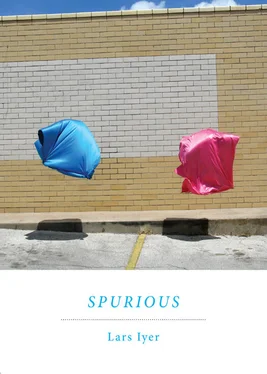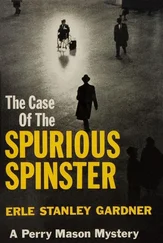This time, we have to look after ourselves. Of course, it’s already gone wrong. We steel ourselves: we have to concentrate. Are we on the right train? Is it going in the right direction? Left to fend for ourselves, we become panicky. Then the conductor comes round to take our tickets. Alles klar , he says, in a voice that is infinitely calm. It soothes us. Alles klar , I write in my notebook: we’re in safe hands, this is a safe country. Over the next few days, we will only have to repeat his phrase to feel secure; it watches over us like a guardian angel.
I remind W. of his photo album. Photos of the young W., happy in Canada, with his family, who are likewise happy, and then photos of W. in England. The fall, W. calls it. The move, says W., that’s when the disaster happened. His parents brought them back to England, to Wolverhampton, of all places. — ‘Wolverhampton!’ says W., ‘can you imagine!’ Ah, what he might have been, had he stayed in Canada! he sighs.
W. is lost in a Canadian reverie. They had a dog which was half wolf, he tells me, and she would follow him on his paper round, leading him by the arm. — ‘She took my hand in her mouth and led me, it was amazing. She never barked. And when we left, she starved herself to death, because she missed us so much. That’s loyalty’.
Above all, W. admires loyalty. Sal’s loyal, he says. She’s loyalty itself, just as he is. You’re not loyal, W. always insists. You’d break the phalanx. You’d betray me — for a woman. He insists on this. When have I betrayed him in the past? — ‘You will betray me’, says W., ‘I’m certain of it’.
Canada. Betrayed , I write in my notebook.
Kafka’s our spiritual leader, W. and I agree over cocktails in the Münsterplatz. He’s gone the furthest, we agree. But we need more immediate leaders, too. W.: ‘We’re stupid, we need to be led’. Didn’t we long ago decide we could redeem ourselves only by creating opportunities for those more capable than ourselves? — ‘It’s our gift’, says W., ‘we know we’re stupid, but we also know what stupidity is not’.
We ought to throw ourselves at their feet and ask them to forgive us. We always stop short of this, of course. We have to remember not to tell them, each of them, that they are our new leader. It would only frighten them off, W. says. No one should ever know he or she is our leader, we agree. Only we should know. And we should follow them in secret.
In truth, we have found several leaders. Our first leader was always an example to W. and me. — ‘I’m not very interesting’, he always insisted, ‘but my … thoughts are interesting’. My … thoughts! We were particularly impressed by the way he said it. My … thoughts … It was as though there were an infinite distance between those words. As though he had nothing to do with his thoughts! As though they had him and not the other way round! He felt a kind of moral duty to his thoughts, we remember. It was as though his life was only a receptacle for something infinitely more important.
‘He was completely serious’, W. remembers, ‘not like us’. Completely serious! And there was a kind of lightness in that seriousness, he remembers, as though thinking were a kind of beatitude. What will we ever know of the infinite lightness of thought? W. wonders. Of thought’s laughter, which laughs in the eyes of the thinker touched with thought?
But then the disaster happened, W. remembers. We told him, didn’t we? We told him he was our leader. We told him what we hoped he’d make us become. We told him of our hopes and fears … That’s where it all went wrong, we agree. We scared him off. After that, we resolved never to tell our leaders that they were our leaders, but we couldn’t help it.
Didn’t the same thing happen with our second leader? Ah, our second leader! He had an absolute lucidity when he spoke of the interlacing of his life and thought, we agree. It was like looking into the clearest of rivers, W. says. How frankly and absolutely he spoke of his thoughts, and to anyone who asked! Frankly and absolutely, as though life were a glass to look through and not to live! Or that life was lived at another level, where thinking, real thought, was possible! — ‘A level of which we have no conception’, says W.
But it happened again. ‘Which one of us blurted it out’, W. asks, ‘you or me?’ Regardless, the spell was broken. We had spoken to him of what we lacked and what he had. We spoke of cosmogony and the opposite of cosmogony, of the beginning of times and of their coming end …
Then there was the third leader. — ‘Ah, our third leader’, W. exclaims, ‘the greatest one of all’.
Everyone knows to keep quiet when he speaks, W. says. He speaks very quietly himself, and is immensely modest, but everyone knows it: here is a thinker, here is thought in person. He lives in a different way from everyone else, that much is clear. He lives another kind of life, and his quietness is a sign of his elevation.
It’s what everyone in the room knows when he speaks: he’s better than the rest of us, cleverer; he occupies the stratosphere of pure thought. Thought is here, and we are touched by a cold and fiery hand, by what it would be impossible for us to think by ourselves. To have a thought that would burn our lives away like dross! To have the whole of our lives become clear and still like pools of water in northern forests!
We lean in, listening. He speaks so quietly, and we must be more quiet than we can be to hear. And for a moment, we forget we are apes, and listen with the whole of our being.
And then it happened again. We told him all we wanted was a leader and to be led by a leader. We told him about our first leader and our second leader, and our desertion by our first leader and our second leader. We told him of the tohu vavohu that comes at the beginning and will return at the end. We told him of the apocalypse and of waiting for the Messiah …
Will we find our new leader in Freiburg? It’s unlikely, we agree as we sip our piña coladas.
Wandering back to the hotel, we lose ourselves in the streets, chancing upon the same section of waterway again and again, the same weir. The city’s closing itself against us, we decide. Against the likes of us. It doesn’t want us here. Should we throw ourselves in the river? Is that what it’s telling us?
Kafka was always our model, we agree. How is it possible that a human being could write like that? W. says, again and again. It’s always at the end of the night when he says this, after we’ve drunk a great deal and the sky opens above us, and it is possible to speak of what is most important.
At the same time, we have Kafka to blame for everything. Our lives each took a wrong turn when we opened The Castle . It was quite fatal: there was literature itself! We were finished. What could we do, simple apes, but exhaust ourselves in imitation? We had been struck by something we could not understand. It was above us, beyond us, and we were not of its order.
Literature softened our brains, says W. — ‘We should have been doing maths. If we knew maths, we might amount to something. As it is, we’ll amount to nothing’.
There’s nothing wrong with literature per se, says W., who cannot go a day without speaking of Kafka, but it’s had a bad effect on us. Besides, he says, he bets Kafka was good at maths. He was good at law, after all, which is probably a bit like maths. Perhaps we should drop out and become lawyers. Perhaps that would be the making of us.
Literature destroyed us: we’ve always been agreed on that. The literary temptation was fatal. Of course, it would be different if we read literature alongside philosophy, W. says, but literature, for us, could not help infecting our philosophy.
Читать дальше












